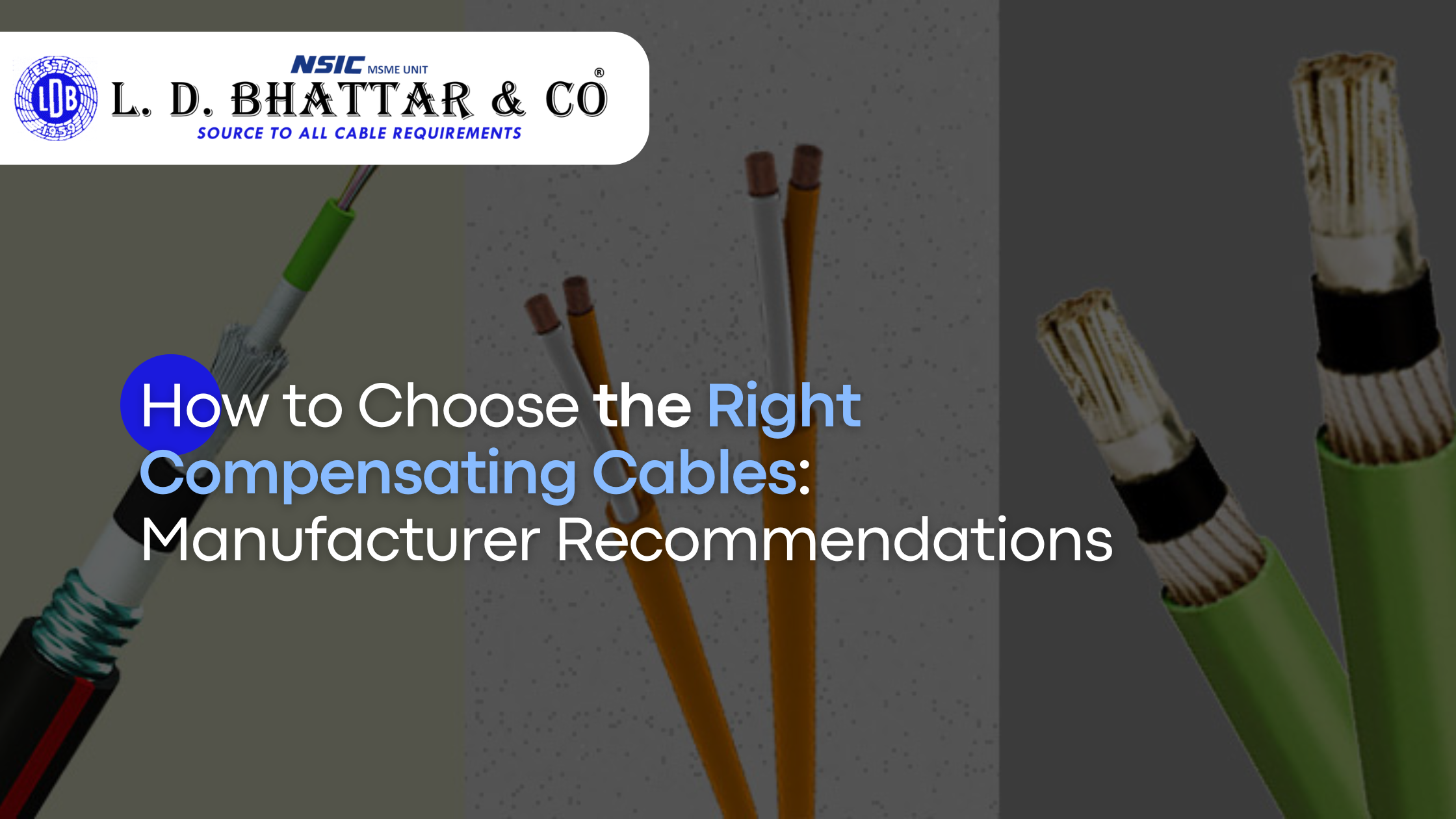There is no doubt that choosing the right compensating cables is extremely important for accurate temperature measurements in several industrial applications. These specialised cables are used to maintain signal integrity and ensure precise reading.
In this guideline, we will discuss the factors you must consider while buying wires from compensating cable manufacturers in India.
What are Compensating Cables?
Compensating or thermocouple cables are particular wires that experts use to connect thermocouples to instrumentation. This is why they are also known as instrumentation cables because they measure the temperature mainly.
Though the mechanism is the same as paired instrumentation cables, the conductor element is different. Experts connect the thermocouples to the pyrometers for control and indication.
Keep in mind that the compensating cables connect both the thermocouple and pyrometers electrically. The conductors must require similar thermoelectric properties since thermocouple wires are used for temperature measurement. Compensating cable manufacturers in India produce them as per S:8784, ANSI-MC 96.1, B.S., ENI, DIN, and customers’ specifications.
Why Do Experts Require a Compensating Cable for a Thermocouple?
As you know, compensating cables are used for temperature measurement. The calculation depends upon the principle of the Seebeck effect, which means the voltage is generated when the temperature becomes different between the two junctions of dissimilar metals in the thermocouple. While using the thermocouple in a temperature measurement system, you should maintain the accuracy.
Remember that the generated voltage is influenced by both the temperature along the length of wires and at the measurement point. The manufacturers make the compensation cables particularly to ensure that any temperature changes along the cable don’t affect the voltage reading at the instrument.
As a result, the instrument can accurately measure the temperature at the thermocouple’s tip, even when the cable is long or passes through areas with different temperatures.
What is the Maximum Length of Compensating Cable?
There are many factors that can affect the actual usable length of a thermocouple. According to the guideline, under 100 feet where the area is free of electromagnetic interference, 20 AWG or thicker wire is usually fine. The main factors that influence the length are:
- Total loop resistance
- Electrical noise, which is in the signal.
Different thermocouple wires are manufactured of different materials, and the resistance will depend upon the type and the wire diameter and length. The compensating cable manufacturers in India determine the resistance of thermocouple wire based on the type, diameter, and length of the wire.
The amplifier circuit’s input resistance affects the allowable loop resistance, but generally, the goal is to keep total loop resistance under 100 ohms, including the probe when applicable. To maintain signal integrity, thermocouple wires should be kept away from electromagnetic fields, such as power wires and motors. Metal overbraid or twisted shielded wire is often used to minimise noise pickup.
Thermocouple wire insulation is colour-coded for identification: the negative lead is typically red, while the positive lead matches the thermocouple-type colour. Extension-grade wire’s overall colour also corresponds to the thermocouple type. Thermocouple-grade wire usually has a brown outer jacket, while high-temperature wire often features a colour-coded tracer thread in white material.
Contact Us!
Choosing the right compensating cables will help you to maintain accurate temperature measurements in industrial procedures. You should consult with compensating cable manufacturers in India for specific recommendations customised to your unique requirements.
With the right cables in place, you can rely on your temperature measurement system for precise and consistent results. However, if you want to learn more about it, get in touch with us at L. D. Bhattar & Co.

